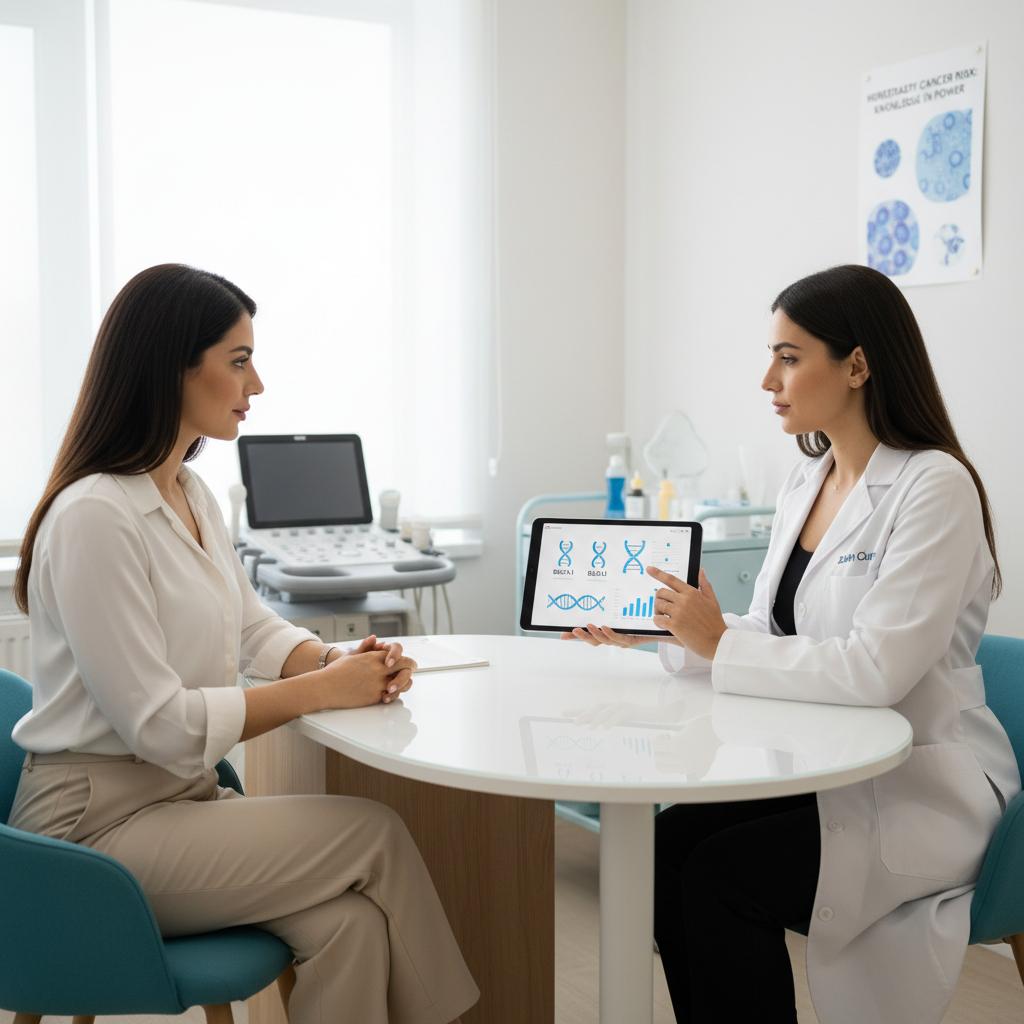
Decoding BRCA1 and BRCA2 — A Woman’s Guide to Hereditary Cancer Risk
Hereditary cancer risk is a growing concern for many women worldwide, and understanding genetic factors like BRCA1 and BRCA2 mutations can empower you to take control of your health. In Dubai, where awareness about genetic testing and preventive healthcare is on the rise, it is especially important to know how these genes influence your cancer risk and when to seek medical advice.
Did Angelina Jolie have BRCA1 or BRCA2?
Angelina Jolie famously underwent preventive surgery after discovering she carried a mutation in the BRCA1 gene. This gene mutation significantly increased her risk of developing breast and ovarian cancer. Her public decision brought worldwide attention to the importance of genetic testing and preventive measures among women at high risk of hereditary cancers. It’s worth noting that both BRCA1 and BRCA2 gene mutations are associated with increased risks, but Angelina's case involved BRCA1.
How do BRCA1 and BRCA2 increase your cancer risk?
BRCA1 and BRCA2 are genes that produce proteins responsible for repairing damaged DNA. When these genes are mutated, their ability to repair DNA is compromised, leading to increased genetic instability and a higher chance of cells growing uncontrollably, which can develop into cancer.
Women carrying BRCA1 or BRCA2 mutations have a significantly higher risk of developing breast and ovarian cancers compared to the general population. BRCA1 mutations generally confer a higher risk and are often linked to more aggressive breast cancers. BRCA2 mutations also increase risks but may have a somewhat different pattern and affect men as well.
Understanding your genetic predisposition through testing helps in making informed decisions about surveillance, preventive strategies, and treatment options.
At what age should BRCA2 ovaries be removed?
Preventive removal of the ovaries (salpingo-oophorectomy) is considered for women with BRCA mutations to reduce the risk of ovarian cancer. For women with BRCA2 mutations, guidelines typically recommend this surgery between the ages of 40 and 45 or after childbearing is complete.
However, the timing can vary based on individual risk factors, family history, and personal preferences. It is crucial to have personalized counseling and evaluation by healthcare professionals to determine the best timing.
Which cancer is most commonly associated with the BRCA1 and BRCA2 gene mutations?
The cancers most commonly associated with BRCA1 and BRCA2 mutations are breast and ovarian cancers. These genes also increase the risk of other cancers, including pancreatic cancer, prostate cancer (in men), and melanoma.
For women, breast and ovarian cancers are the primary concerns due to the significantly elevated risks. Early detection and preventive strategies, such as increased surveillance, medication, or surgeries, can help manage these risks effectively.
When to Visit a Doctor at Zaincura
If you have a family history of breast, ovarian, or related cancers, or if you are concerned about your hereditary cancer risk, it is important to seek professional medical advice. Genetic counseling and testing for BRCA1 and BRCA2 mutations can provide valuable insights.
At Zaincura, our experienced doctors offer personalized assessments and guidance tailored to your health needs. If you experience any unusual symptoms or have concerns about hereditary cancers, book an appointment with us. Early consultation can lead to proactive measures that may significantly improve health outcomes.
Conclusion
Understanding BRCA1 and BRCA2 gene mutations is crucial for women looking to manage their hereditary cancer risk. While Angelina Jolie’s story raised awareness globally, it’s your personal health and family history that should guide your decisions.
It's always best to consult a healthcare professional for a diagnosis and personalized recommendations. Our doctors at Zaincura can provide a thorough evaluation and help you create a care plan suited to your needs. Taking informed steps today can empower you to protect your health for tomorrow.